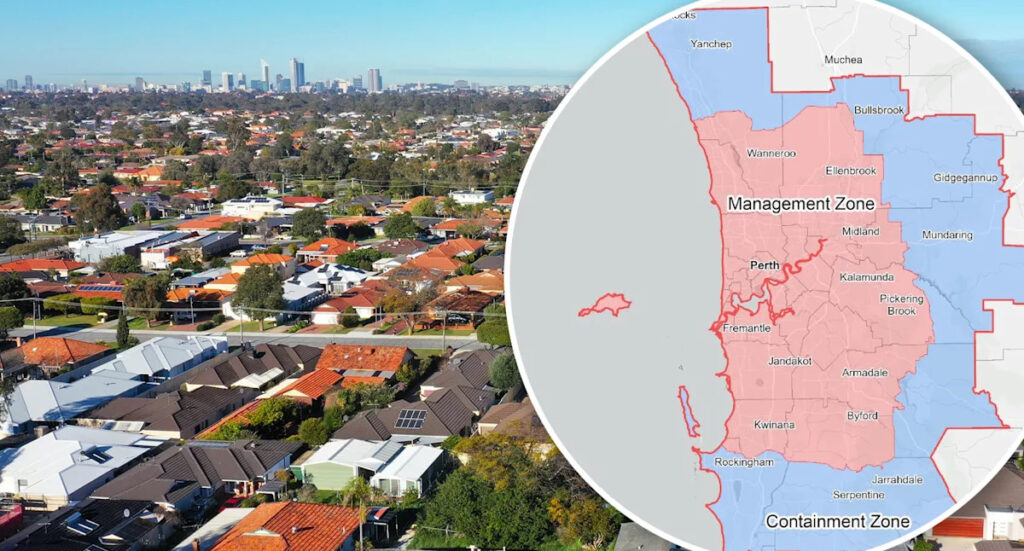
A quarantine zone will be expanded around Perth, the capital city of Western Australia, starting Friday. Local authorities are intensifying efforts to curb the spread of the polyphagous shot-hole borer, a destructive pest that has been causing significant damage since its first detection in 2021. The beetle poses a severe threat to the city’s environment and agriculture.
The polyphagous shot-hole borer, originally from Southeast Asia, has led to the removal of thousands of trees across Perth, including in iconic areas such as Kings Park and Rottnest Island. The pest’s impact has been devastating, further depleting Perth’s already struggling tree canopy and raising fears of widespread forest and crop destruction.
Government and Community Response
In June, the federal government acknowledged the failure of its multimillion-dollar campaign to eradicate the beetle in Western Australia, a move that environmental groups have criticized. The Invasive Species Council warned that the pest could threaten the entire nation. Despite this setback, authorities remain vigilant.
On Wednesday, the Department of Primary Industries and Regional Development (DPIRD) announced the creation of new quarantine zones for the entire Perth metropolitan area. This decision aims to mitigate the escalating threat posed by the beetle.
Details of the Quarantine Zones
The expanded quarantine area is divided into two sections: an inner “management zone” where the infestation is most severe, and an outer “containment zone” with lower pest levels. Within these zones, the movement of any host material is heavily restricted to prevent further spread.
Landowners in the management zone, which extends from Wanneroo to Kwinana, are not required to remove affected trees. Instead, they are responsible for managing their trees and choosing appropriate management strategies. The national response will focus on removing and pruning infested trees in the containment zone.
“Biosecurity is everyone’s responsibility,” said Dr. Mia Carbon, Deputy Director General Biosecurity and Emergency Management at DPIRD. “A collaborative effort will be the best chance of limiting the spread of the borer and minimizing its impact on our tree canopy and valuable horticulture industries.”
Long-Term Management and Support
The DPIRD has announced the formation of a specialist team to assist homeowners and local councils as the national biosecurity response transitions to long-term management. This team, known as the Capacity Building and Training team, will provide an integrated pest management program, technical workshops, and community education.
Dr. Carbon emphasized the importance of equipping arborists, nurseries, and the horticulture industry with the latest tools and knowledge to combat the borer. The WA government has committed $2.5 million to support local councils in managing infested trees and an additional $2.17 million for research into control and treatment options.
Implications for the Future
The expanded quarantine measures represent a critical step in the ongoing battle against the polyphagous shot-hole borer. As Perth grapples with this ecological challenge, the response could serve as a model for other regions facing similar threats.
Residents are urged to remain vigilant and report any suspected infestations to the DPIRD Pest and Disease Information Service. The collective effort of government agencies, local councils, and the community will be vital in protecting Perth’s natural environment and agricultural resources.
If you suspect a shot-hole borer infestation on your property, contact the DPIRD Pest and Disease Information Service at (08) 9368 3080, or by email at [email protected].
Do you have a story tip? Email: [email protected].







